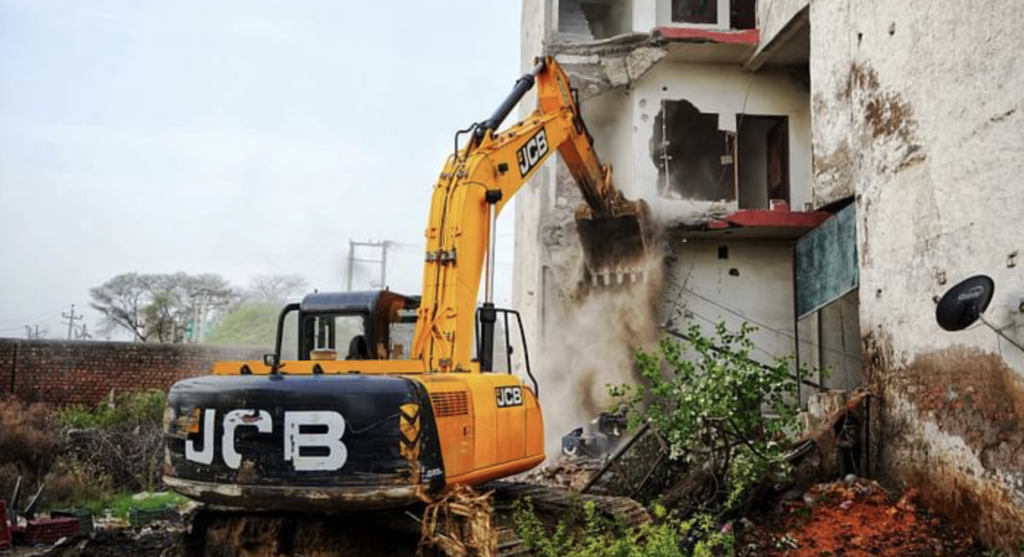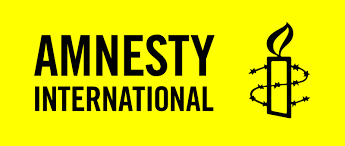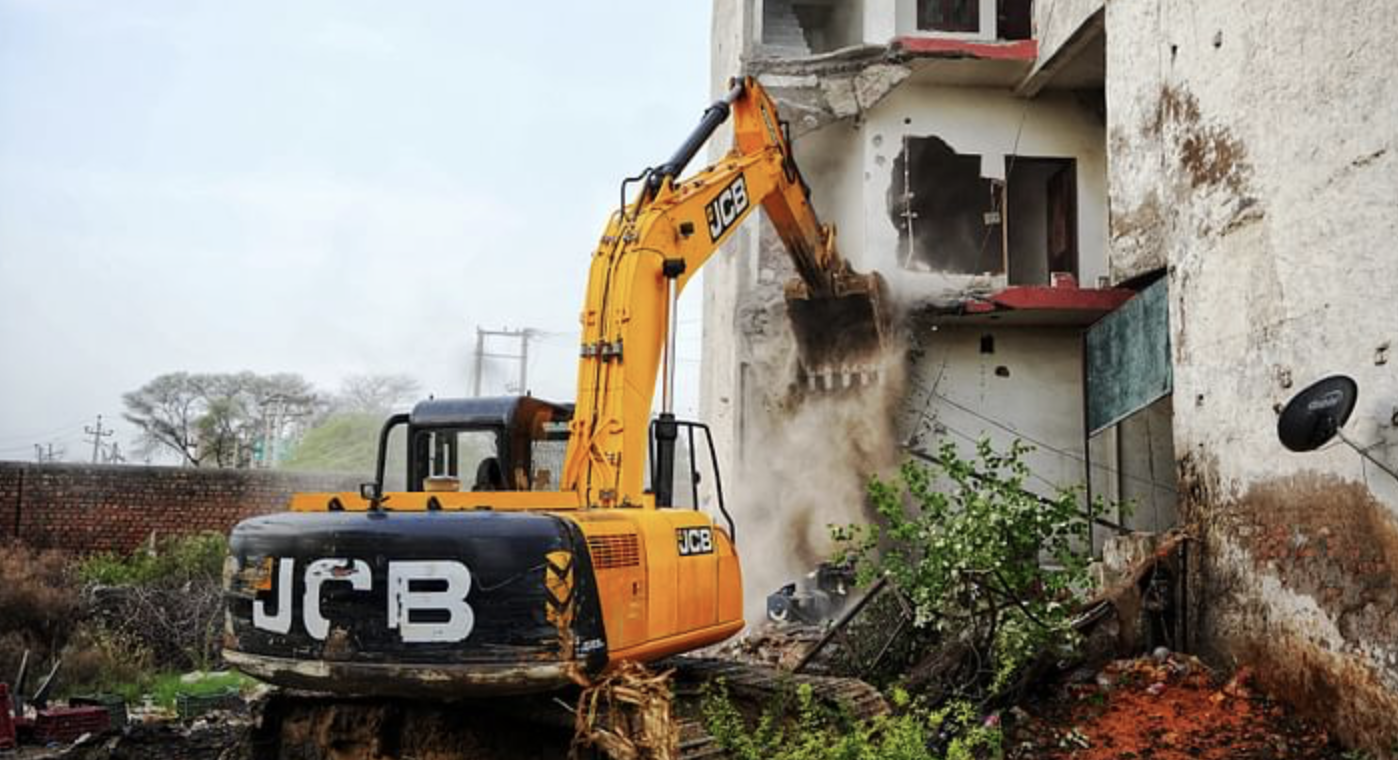Bulldozer (In)Justice—A look at systemic discrimination in India
AUTHOR: Tanaaz Shahariyar
During the period from April to June 2022, Amnesty International recorded the deliberate demolition of a minimum of 128 properties, encompassing residences, businesses, and places of worship, with the vast majority owned by Muslims. These incidents took place in various states governed by the Bharatiya Janata Party (BJP), namely Assam, Gujarat, Madhya Pradesh, and Uttar Pradesh.
As of last year, more than 300 Muslim properties were demolished in New Delhi, following a bout of communal violence. Similarly, in January 2024, Muslim homes and properties were destroyed in Mumbai. This represents just a fraction of a much larger issue, in which minority communities in India are being targets of extreme communal violence with the government doing little to address the issue.
This article will specifically be focusing on the case of demolitions carried out—under the guise of remedying illegal encroachment—via use of bulldozers which have become a symbol of Muslim oppression in India. According to Amnesty’s investigations, the bulldozers used to carry out the demolitions are manufactured by JC Bamford Excavators (JCB), a company based in the UK, specializing in earthmoving, construction, agriculture, and demolition equipment. JCB and bulldozer have become interchangeable and synonymous with each other, with BJP leaders alluding to JCB machines as tools to punish Muslims. BJP spokesperson GVL Narasimha Rao referred to JCB as “Jihadi Control Board” in a now deleted X (formerly twitter) post back in April 2022.

(JCB ‘brand of choice in hate campaign’. Source: The Quint)
Similarly, a BJP leader from Telangana publicly threatened voters in the state to vote for Yogi Adityanath or face demolition of their properties by JCB bulldozers before the legislative assembly elections in Uttar Pradesh in February 2022. When Adityanath won for the second consecutive year, a celebratory rally was held with JCB bulldozers. Amnesty has written to JCB’s UK headquarters as well as their subsidiary, JCB India, informing them of the use of their machinery to carry out forced evictions and punitive demolitions. JCB has denied any responsibility over the issue, asserting that they have no legal ownership over their products once sold. However, it is interesting to note that this is not the first time JCB’s machinery has been used in situations where human rights violations were committed.
Amnesty International carried out a thorough investigation and published a report of the use of JCB machinery to commit human rights violations in the Occupied Palestinian Territories. According to UN Guiding Principles on Business and Human Rights, all of JCB’s corporate entities have the responsibility to “conduct due diligence to identify, prevent, mitigate and account for adverse human rights impacts the company may cause, contribute to, or which are directly linked to its operations, products or services by its business relationships.”
In India, Muslims constitute over 14.2% (an estimated 172.2 million) of the total population, and it is also home to 11% of the total Muslim population of the world. Yet, Muslims have suffered through systemic, deep-rooted discrimination and oppression from successive Indian governments. The demolitions were instigated by the highest level of government, legitimizing the violence against the group and inciting hatred. Amnesty International found that in all five states where research was conducted, the demolition was carried out without any prior notice, adequate consultation or any alternative resettlement opportunities for the victims. In addition, there were cases in which the demolition was carried out in the middle of the night, and without warning, which led to occupants having no time to salvage any of their belongings.
This was done by respective state authorities and included the use of intimidation and excess use of force. Under International Human Rights Law, authorities are to ensure that evictions are lawful and conducted in a manner respecting the occupants, as well as using necessary and proportionate force. Instead, several victims reported the presence of police authorities armed with batons and occasionally firearms, further cementing the distrust and fear of law enforcement already prevalent in the Muslim community due to the broader systemic discrimination.
It should also be noted that the states’ municipal and land regulation laws all fall below the international human rights standard. Amnesty has since then stated in its report that the use of demolitions by the Indian government is a form of collective and arbitrary punishment specifically targeted to deter and retaliate against marginalized groups, in particular, Muslims, after episodes of communal violence and protests.”
The involvement of JCB raises questions regarding corporate accountability but moreover, it highlights the grim reality faced by Muslims in India, in the aftermath of communal violence and protests. It exposes the systemic failure to protect vulnerable communities (there are several cases not only pertaining to the Muslim community). With the 2024 elections coming soon, one can hope there will be concrete reforms introduced to combat these issues and more importantly, address India’s eroding democracy.
Sources
https://www.amnesty.org/en/petition/jcb-must-say-no-to-bulldozer-injustice-in-india

